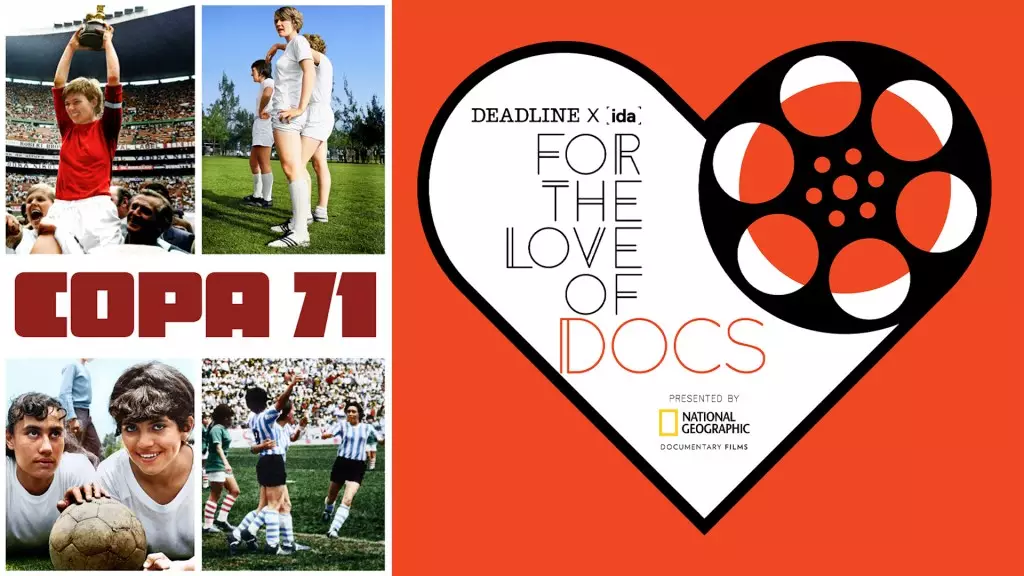In 1971, a remarkable chapter was scripted in the annals of women’s sports. At the monumental Azteca Stadium in Mexico City, a staggering audience of over 110,000 gathered for what would become the (unofficial) Women’s World Cup soccer tournament. This groundbreaking event remains the largest gathering ever for a women’s sporting competition, yet its story has been largely erased from the collective memory. A documentary titled “Copa 71,” directed by Rachel Ramsay and James Erskine, aims to resurrect this buried narrative. Featuring accounts from participants and a retrospective of the tournament’s significance, the documentary shines a light on the triumphs and tribulations faced by female athletes at a time when sports were overwhelmingly male-dominated.
The Journey of Discovery
The origins of “Copa 71” began when producer Victoria Gregory learned of the tournament through a casual conversation with her husband who had heard a radio interview with one of the English players. Intrigued by the prospect of such an incredible yet overlooked story, Gregory rallied together a talented team to uncover the historical significance of this event. Their journey involved sifting through archives for footage and interviews with surviving players from participating nations like Mexico, England, Argentina, France, Italy, and Denmark.
However, rekindling these stories was not without its challenges. Upon approaching former players, many expressed skepticism and hesitation. Gregory recounted the initial conversations with the English team, highlighting a palpable wariness, with players questioning the filmmakers’ intentions. This distrust stemmed from their past experiences, which had often involved media exploitation and misrepresentation. Understanding the need for sensitivity, the filmmakers endeavored to cultivate genuine relationships with the players, ensuring their narratives would be portrayed with the respect and dignity they deserved.
As the documentary unfolds, it becomes evident why many former players were guarded about sharing their stories. In a world where women athletes frequently faced misogyny and objectification, the 1971 tournament was no exception. Female players were subjected to unnerving levels of scrutiny, as some journalists chose to focus on their physical appearances rather than their athletic prowess. The perception of women’s soccer as a legitimate sport was continually undermined by an entrenched system that favored male dominance in the field.
Moreover, FIFA’s refusal to sanction a Women’s World Cup until two decades later reflected a broader cultural bias against women’s sports. The governing body regarded the tournament as a threat rather than an opportunity for growth, thereby sidelining the potential of female athletes. Fast forward to 2023, and incidents like the one involving Luis Rubiales, the then-president of the Royal Spanish Football Federation, who forcibly kissed a player during a medal ceremony, indicate that these issues are still very much alive today. Such occurrences cause one to ponder whether meaningful progress has truly been made in the fight for gender equality in sports.
The themes explored in “Copa 71” highlight the complexities surrounding women’s rights in sports: financial independence, physical autonomy, and the right to self-expression. Ramsay articulated the film’s intent to uncover the persistent issues that women face, echoing sentiments from five decades ago. As the filmmakers invite audiences to draw parallels between past and present, the message is clear: despite the passage of time, the struggles for equality and recognition are ongoing.
“Copa 71” not only demonstrates that women’s sports can attract substantial audiences but also reveals the harsh realities faced by female athletes. It explores the paradox that while the 1971 tournament was a commercial success for many, including media outlets and sponsors, the athletes themselves were denied their due compensations. The Mexican women’s team even staged a brief strike in pursuit of better pay, illustrating their fight for equitable treatment.
As the conversation shifts from historical analysis to contemporary relevance, Erskine emphasizes that discussions about gender politics in sports should prioritize autonomy and self-determination over monetary rewards. The recent controversies surrounding women’s sports highlight the control exerted over female athletes, often manifesting as intimidation or humiliation. When figures like Rubiales attempt to exert dominance, it echoes the broader societal issue of women’s rights being compromised.
“Copa 71” serves as a poignant reminder of the resilience of women athletes and the importance of recognizing their contributions to the sporting world. The documentary not only encapsulates a forgotten history but also serves as a call to action for future generations. In revisiting the story of the 1971 tournament, we are urged to champion the rights of all athletes and to continue dismantling the barriers that inhibit women in sports—both on and off the field.


Leave a Reply